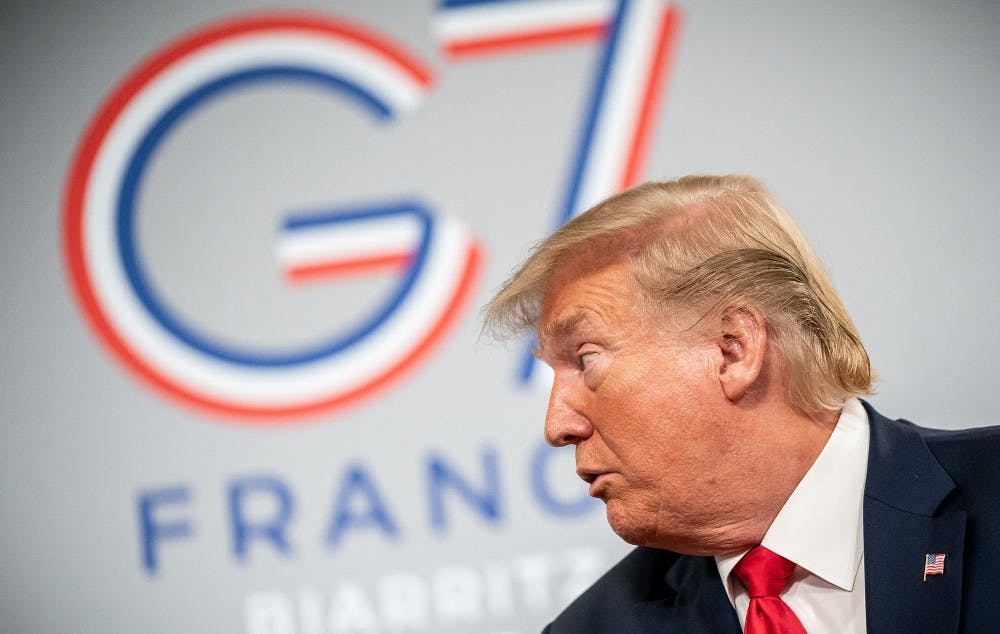Last weekend’s Group of Seven (G7) summit coordinated economic policies among seven industrialized democracies – Canada, France, Germany, Italy, Japan, the United Kingdom and the United States. However, this tradition of cooperation was turned upside down by President Donald Trump and British Prime Minister Boris Johnson, who looked to further their nationalist agendas.
Protectionist trade policies dominated the conference, including Trump’s escalating trade war with China, France’s proposed sales tax that would target American technology corporations such as Facebook and Apple, and threats of retaliatory American tariffs on French wines.
Johnson failed to reach an agreement on Britain’s exit from the European Union. The clock continues to tick until October 31 when Britain will exit the EU with or without an agreement. If a deal cannot be made, the U.K., our closest ally, will plunge into economic turmoil.
These heads of state seem to have forgotten the original purpose of the G7 summit. It was created in 1975 to provide a venue for the noncommunist powers to address pressing economic concerns, which, at the time, were rampant inflation and a global recession.
Nationalist leaders like Johnson and Trump will continue to place populist demands over international cooperation. Other world leaders should not give into these demands. Instead, they should find a way to work around nationalist sentiments to benefit the greater good.
We are at the brink of another global recession that is only exacerbated by America’s trade war with China and fears of a no-deal Brexit. Corporate insiders have sold $600 million of stock per day in August, a rate that closely resembled the months leading up to the Great Recession in 2008.
However, last Tuesday, before the G7 summit, Trump insisted “I mean, our country is doing very well.” While that might be true for now, several major countries have reported slow growth—including our fifth-largest trading partner, Germany.
The United States would face the disastrous consequences of a major recession regardless of whether or not it started in another country. International cooperation would make a recession shorter and milder. Despite this, Trump refused to even acknowledge the possibility of a recession, which was a highly irresponsible decision.
The G7 Summit is a place where the most powerful nations can work together to solve global problems. Yet Johnson and Trump sought to distance themselves from international organizations that promote collaboration among countries.
Johnson spent most of his time at the summit courting Trump in the hopes of achieving a post-Brexit trade deal. This would alleviate the consequences of a no-deal Brexit on the U.K. but leave France and Germany in the dust to hold up the EU.
Unfortunately, on other global issues such as climate change, Trump has also kept his America-first agenda. On Monday, he skipped a meeting on the Amazon forest fires, and one member of the president’s staff even referred to climate change as a niche issue.
International politics should be thought of in terms of partnership, not winners and losers. To avoid economic and ecological disasters, other leaders cannot participate in Johnson’s and Trump’s zero-sum game. Although we must recognize when they are unsuccessful, Americans should not lose faith in international forums and institutions.






